
Life to Our Beaches Fuels the Clean Sri Lanka Campaign
Sri Lanka’s picturesque coastline is under threat from marine pollution and mismanaged waste, challenges that not only harm the environment but also undermine the country’s tourism and economic potential. In response, the Life to Our Beaches Project is making a tangible impact, creating cleaner, more resilient coastal areas while offering significant opportunities for the private sector to contribute to a sustainable future.
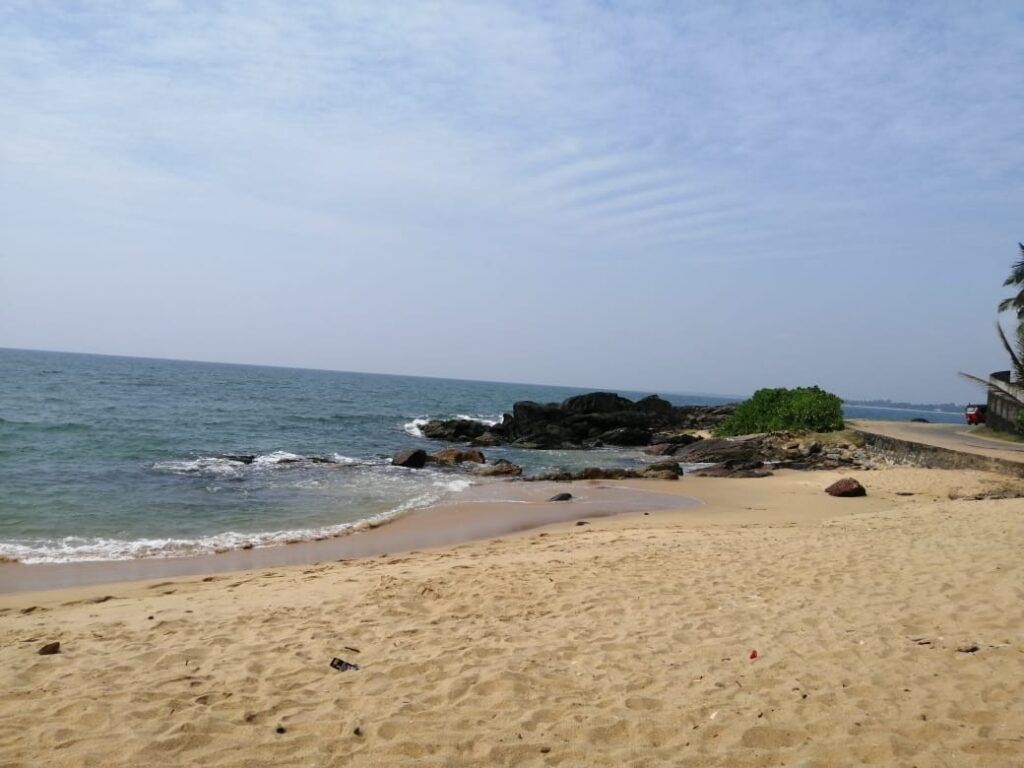
Cleaning Up for a Clean Sri Lanka
The Clean Sri Lanka campaign is now setting the national agenda for environmental stewardship, and the Life to Our Beaches Project is a shining example of such a vision in action. Two pilot projects, located at Kalutara’s Calido Beach and Beruwala’s Kechchimale Beach Park, have demonstrated how targeted interventions can restore the natural beauty of our coastal areas. At Calido Beach, a 500-meter stretch that was heavily polluted by waste from the Kalu River, concerted cleanup efforts led by a partnership between the Ministry of Environment, Biodiversity Sri Lanka (BSL), and Commercial Bank have resulted in the removal of over 1,586 kilograms of waste. Similarly, the Kechchimale Beach Park project in Beruwala, supported by the Bank of Ceylon, tackled pollution stemming from plastic waste and sewage from the local fishery harbor, removing 169 kilograms of debris.
Beyond environmental cleanup, these initiatives have also provided socio-economic benefits. Beach caretakers, who are predominantly from economically disadvantaged communities, have earned supplementary income through the recycling of waste. For example, the caretaker at Calido Beach generated earnings of LKR 35,585 through recyclable sales. Such outcomes not only contribute to a cleaner environment but also enhance livelihoods, underscoring the holistic benefits of sustainable beach management.
Opportunities for the Private Sector
For private sector players, the Life to Our Beaches Project represents more than just a charitable endeavor—it is a strategic opportunity to drive corporate social responsibility (CSR) initiatives, boost brand reputation, and contribute to the national Clean Sri Lanka campaign. Companies that invest in or sponsor these projects can benefit from enhanced visibility, positive community engagement, and alignment with global sustainability trends.
Leading financial institutions like Commercial Bank and the Bank of Ceylon have already set a precedent by supporting these initiatives. Their involvement demonstrates how aligning business strategies with environmental goals not only fulfills regulatory and CSR mandates but also opens up new avenues for innovation and growth. In today’s market, consumers and investors increasingly favor companies that are committed to environmental stewardship, and involvement in such projects can significantly enhance corporate image and competitiveness.

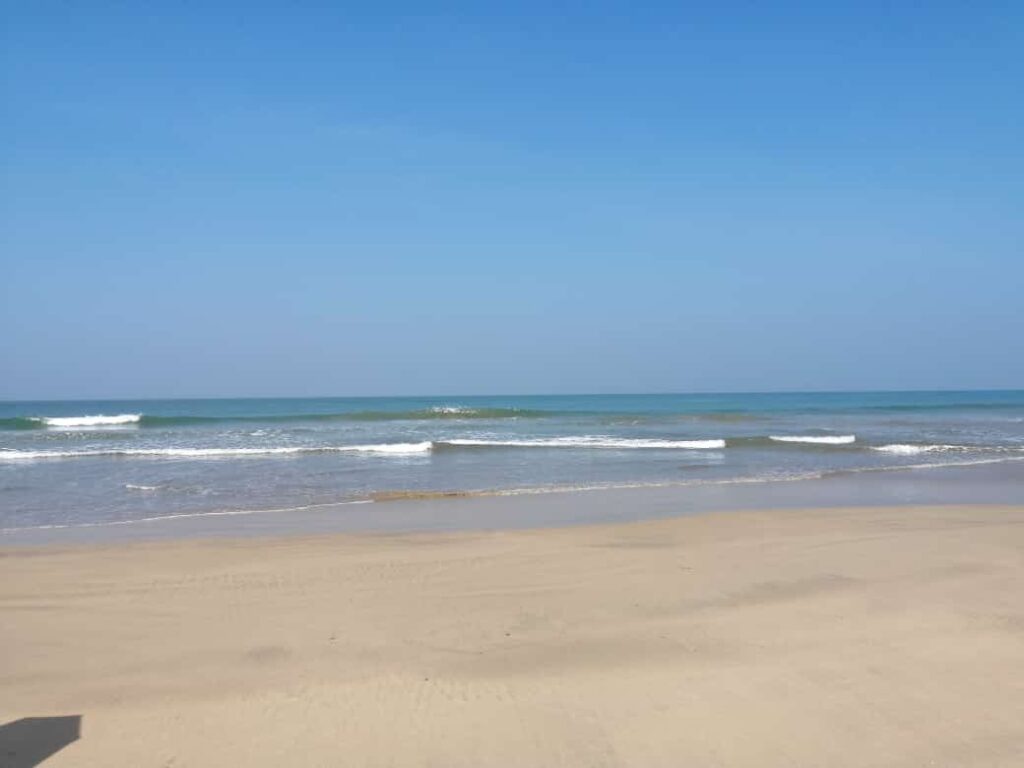
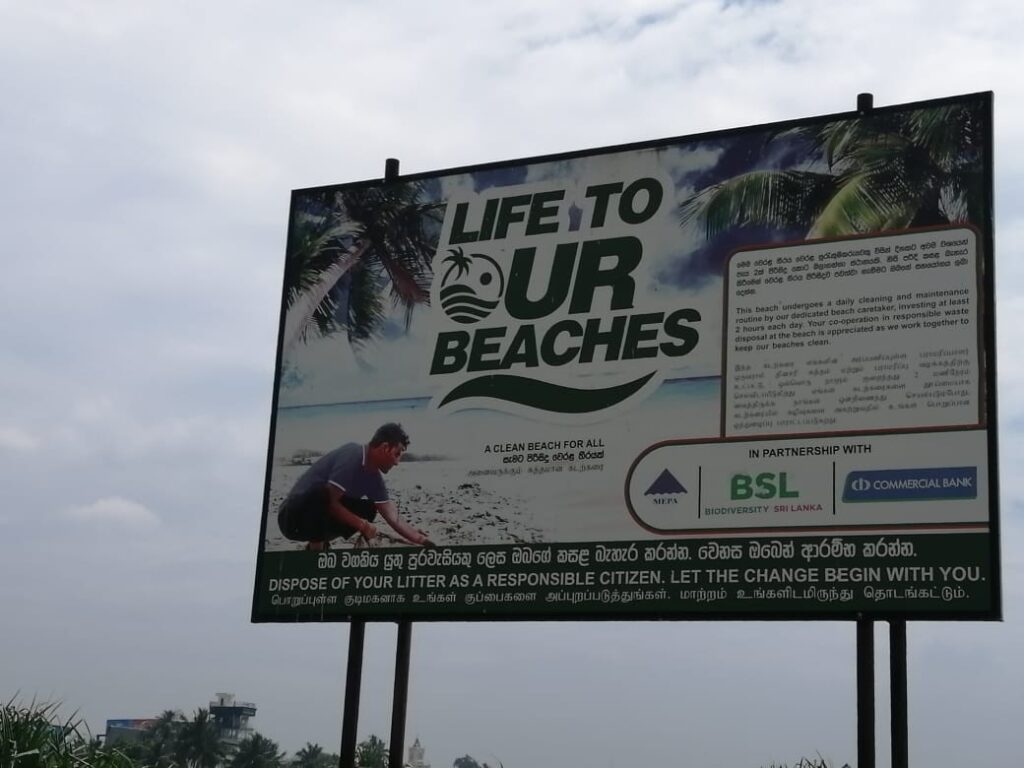
Scaling Up and Future Prospects
Building on the success of the pilot projects, the Life to Our Beaches Project is set to expand to new locations, including Kayankerni Beach in Batticaloa, Eastern Province. This expansion aims to replicate the successes seen at Calido Beach and Kechchimale Beach Park while addressing unique challenges specific to each coastal region. The new project in Batticaloa will focus on reducing plastic pollution, improving waste management systems, and empowering local communities through sustainable beach stewardship.
Moreover, future efforts will include continuous training for beach caretakers to enhance their operational efficiency, structured recruitment and retention strategies to maintain long-term commitment, and the launch of media campaigns to boost public awareness and attract further corporate support. By scaling up these initiatives, the programme aims to create a network of clean and sustainable beaches across Sri Lanka, contributing significantly to the Clean Sri Lanka campaign and setting a benchmark for environmental responsibility in the private sector.
A Call to Action for Sustainable Impact
The transformation of Sri Lanka’s coastlines through the Life to Our Beaches Project exemplifies how coordinated efforts between government, NGOs, and the private sector can lead to measurable environmental and socio-economic improvements. For the private sector, this initiative offers a unique platform to drive innovation in waste management, foster sustainable business practices, and demonstrate a commitment to the nation’s environmental goals.
As Sri Lanka strives towards a cleaner, more sustainable future, the active participation of private companies is crucial. By investing in these projects, businesses can not only help protect one of the country’s most valuable natural assets but also contribute to the broader national agenda of a Clean Sri Lanka. In doing so, they will not only reap economic and reputational benefits but also play a pivotal role in shaping a greener, more resilient future for all.
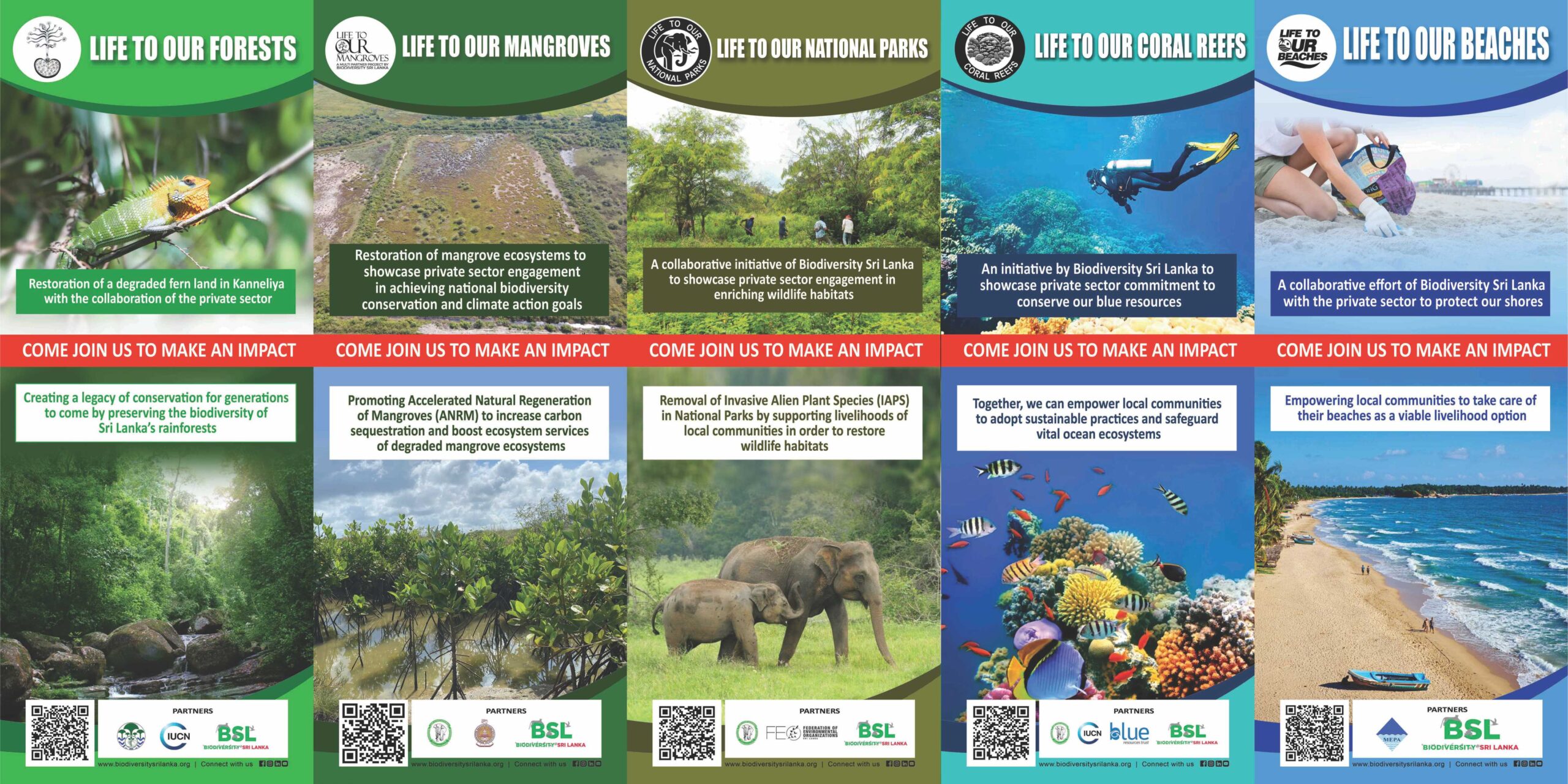
Introducing the BSL LIFE Series: Leading Initiatives for Environment and Sustainability
In today’s world, where environmental sustainability is both a global priority and a pressing need, businesses are expected to lead by example. Biodiversity Sri Lanka (BSL) recognizes this urgency and provides its members with a powerful platform to address environmental challenges in a meaningful way. Through our LIFE Series (Leading Initiatives for Environment), BSL connects, empowers, and inspires member companies to adopt sustainable practices that support biodiversity and make a tangible impact on the ground.
What is the LIFE Series?
The LIFE Series is a suite of carefully designed initiatives that provide BSL members with resources, opportunities, and guidance to advance their sustainability efforts. It’s more than a program – it’s a journey where businesses from various sectors can learn, innovate, and act collectively. The LIFE Series emphasizes collaborative action, knowledge sharing, and hands-on engagement with pressing environmental issues in Sri Lanka.
While understanding the broad benefits of reversing the trend in environmental degradation, most companies are reluctant to begin intervening in natural ecosystem restoration as this requires specialised knowledge and long-term involvement. BSL has recognised the fact that such businesses need technical support as well as assistance in liasing with government stakeholders. Using many years of experience in facilitating field-based interventions and leveraging on the strong relationship built with the public sector in Sri Lanka, BSL has now packaged its field activities to offer the LIFE Series of projects to the private sector.
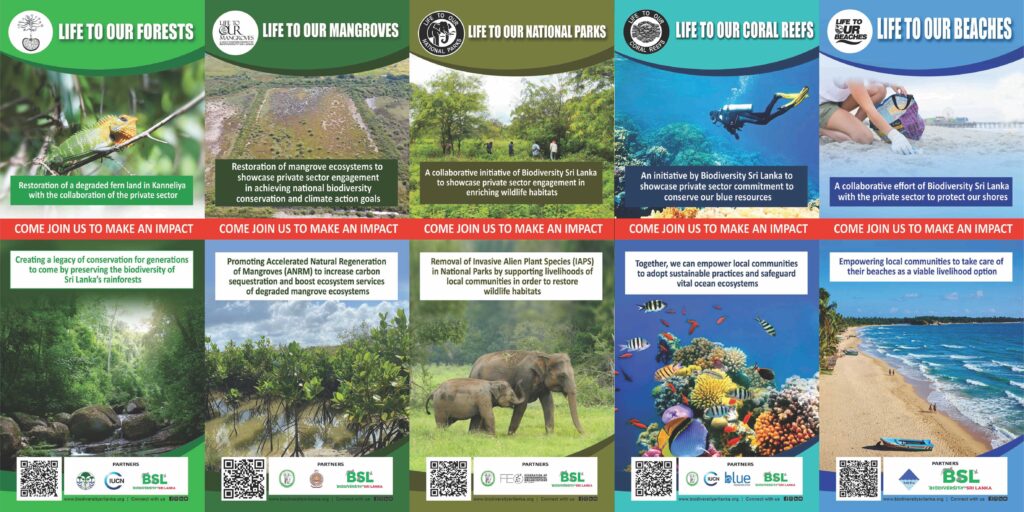
The LIFE Series currently comprises of five pathways for corporate involvement in nature-positive environmental interventions at a national level:
- Life to Our Forests (LOF) – Restoration of a degraded fern land in the Kanneliya Forest Reserve in collaboration with the Forest Department and IUCN with the objective of creating a legacy of conservation for generations to come by preserving the biodiversity of Sri Lanka’s rainforests.
- Life to Our Mangroves (LOM) – Restoration of mangrove ecosystems to showcase private sector engagement in achieving national biodiversity conservation and climate action goals. This project promotes Accelerated Natural Regeneration of Mangroves (ANRM) to increase carbon sequestration and boost ecosystem services of degraded mangrove ecosystems in collaboration with Wayamba University and the Department of Wildlife Conservation.
- Life to Our Coral Reefs (LOCR) – This is an initiative of Biodiversity Sri Lanka to showcase private sector commitment to conserve Sri Lanka’s blue resources. In collaboration with the Department of Wildlife Conservation, IUCN and the Blue Resources Trust, the project empowers local communities to adopt sustainable practices that safeguard vital ocean resources.
- Life to Our Beaches (LOB) – By empowering local communities – particularly women – to take care of their beaches as a viable livelihood option, this project provides a pathway for the private sector to protect Sri Lanka’s shores with the support of the Marine Environment Protection Authority (MEPA).
- Life to Our National Parks (LONP) – This is a collaborative initiative of Biodiversity Sri Lanka to showcase private sector engagement in enriching wildlife habitats. The project engages surrounding communities in the removal of Invasive Alien Plant Species (IAPS) in national parks by supporting livelihoods that restore wildlife habitats. This is a collective effort of BSL and the Federation of Environmental Organisations (FEO) together with the Department of Wildlife Conservation.
Biodiversity Sri Lanka encourages businesses to work closely with government agencies and NGOs through the LIFE Series of projects that focus on providing economic benefits to local communities while safeguarding natural ecosystems. This could include supporting rural livelihoods through sustainable farming initiatives, promoting eco-tourism, or funding biodiversity research.
Each initiative within the LIFE Series addresses specific aspects of biodiversity conservation and sustainable practices, making it possible for companies to choose pathways that align with their unique environmental commitments. The program offers diverse activities, from technical workshops and field training to collaborative projects that bring businesses and conservation experts together.
Why LIFE Series Matters to Businesses
Environmental leadership is now a key component of a company’s reputation and success. In Sri Lanka, consumers, investors, and communities alike are increasingly interested in businesses that demonstrate real commitment to sustainability. The LIFE Series helps member companies integrate sustainable practices into their business models while showcasing these efforts to stakeholders who value responsible business conduct.
By participating in the LIFE Series, companies can:
- Gain Practical Knowledge: The LIFE Series offers workshops, seminars, and resources that equip businesses with practical tools for tackling environmental challenges. From eco-friendly supply chain management to biodiversity conservation strategies, the LIFE Series covers essential skills that help businesses thrive sustainably.
- Build Partnerships: At BSL, we believe in the power of partnerships. LIFE Series initiatives create a space for companies to connect with like-minded businesses, conservationists, and experts. Together, our members share ideas, build solutions, and drive initiatives that extend beyond individual actions to collective impact.
- Demonstrate Accountability: Through regular reporting, impact assessments, and project visibility, BSL members who engage in the LIFE Series can demonstrate their commitment to sustainability. This accountability is critical in building trust with customers, investors, and communities.
- Make Ground-level Impact: The LIFE Series is designed to generate measurable environmental benefits. Whether through habitat restoration, pollution reduction, or awareness campaigns, each initiative within the series is crafted to make a lasting, positive impact on Sri Lanka’s natural environment.
Key Components of the LIFE Series
The LIFE Series is divided into several key components, each designed to address a different facet of sustainability. Some highlights include:
- LIFE Talks and Technical Sessions: These sessions bring together industry experts, scientists, and policymakers to discuss the latest developments in biodiversity conservation and sustainable practices. LIFE Talks provide an invaluable learning opportunity for members, helping them stay informed and engaged with global and local environmental trends.
- Field Projects and Conservation Activities: From coastal clean-ups to forest restoration projects, the LIFE Series organizes hands-on activities where members can contribute directly to the environment. These projects not only offer employees a chance to get involved but also give businesses the opportunity to show their commitment to real, on-the-ground change.
- Capacity-Building Workshops: BSL offers tailored training sessions for companies that want to strengthen their sustainability initiatives. Topics range from carbon footprint reduction to water conservation, giving businesses the tools they need to enhance their own environmental practices and inspire others in their industry.
- The LIFE Recognition Program: This program celebrates outstanding contributions to sustainability by recognizing member companies that go above and beyond. The LIFE Recognition Program awards businesses that have shown exceptional dedication to environmental stewardship, highlighting their achievements and motivating others to follow suit.
Success Stories: The LIFE Series in Action
The LIFE Series has already achieved significant results, thanks to the commitment and passion of BSL’s members. For example, our recent reforestation project in Kanneliya has brought together businesses, local communities, and environmental experts to restore degraded forest areas and improve biodiversity. Members who participated in this initiative have seen firsthand the power of collective action and the benefits it brings to both nature and business.
Another success story is the BSL Plastic Waste Reduction Initiative, where companies from various sectors collaborated to reduce single-use plastics in their operations. By sharing best practices and implementing waste reduction measures, these businesses have successfully minimized their environmental impact while demonstrating the benefits of sustainable practices to their employees and clients.
Why Join the LIFE Series?
The LIFE Series is designed for companies that are ready to make a meaningful impact on Sri Lanka’s environment. By joining, you not only gain access to a supportive network of like-minded businesses but also position yourself as a leader in sustainability. Whether you’re looking to improve internal practices, strengthen community relations, or boost your environmental credibility, the LIFE Series offers a pathway to achieving your goals.
At BSL, we understand that sustainability is a journey, and we’re here to support our members every step of the way. By joining the LIFE Series, your company becomes part of a movement that’s reshaping Sri Lanka’s environmental future. Together, we can make a difference that lasts.
Get Involved
If you’re ready to take your sustainability journey to the next level, we invite you to explore the LIFE Series and see how your business can benefit. For more information or to discuss how your company can join, please reach out to us at BSL. Together, let’s lead the way toward a sustainable, biodiverse Sri Lanka.
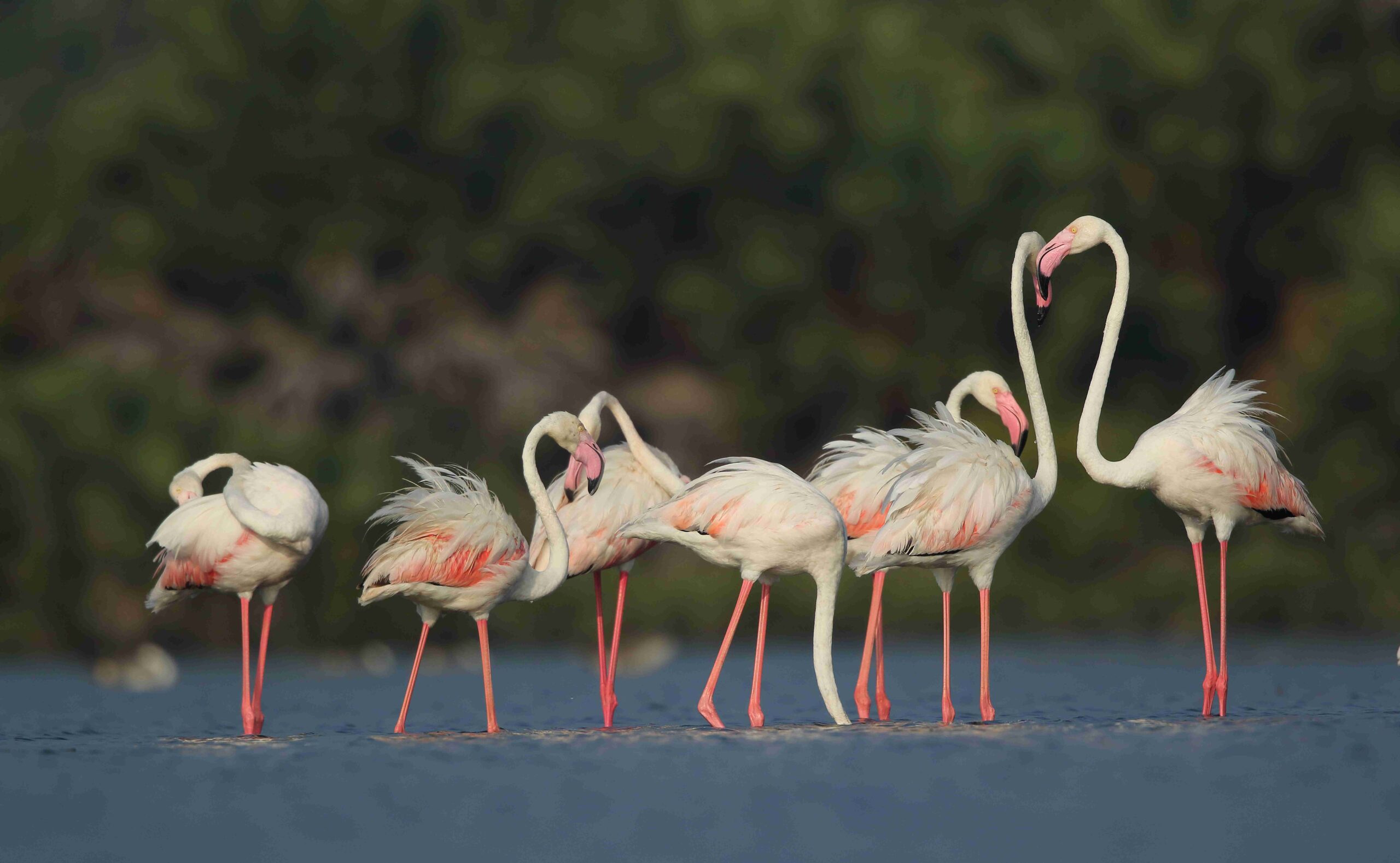
The Vital Connection Between Biodiversity and Sustainability
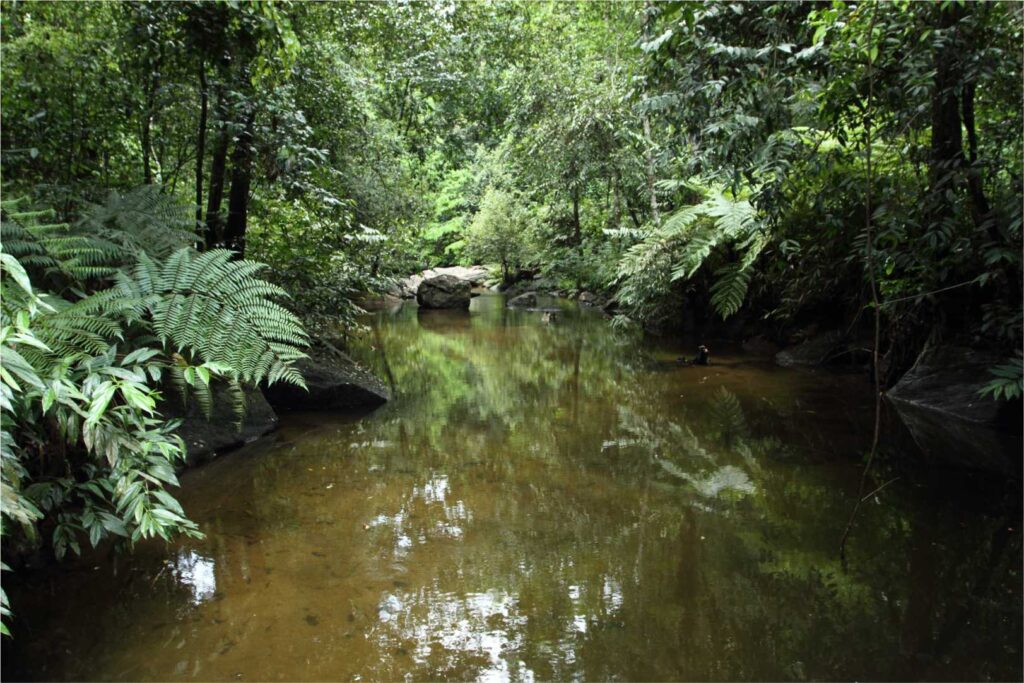
In today’s rapidly changing world, the concepts of biodiversity and sustainability are more interconnected than ever before. As leaders in the business community, it’s crucial to understand this nexus and take proactive steps to ensure that our economic activities support, rather than harm, the natural world that sustains us.
Why Biodiversity Matters
Biodiversity refers to the variety of life on Earth, encompassing different species, ecosystems, and genetic variations. This diversity is not just about preserving the beauty of nature; it’s about maintaining the essential services that ecosystems provide. These services include clean air and water, fertile soil for agriculture, pollination of crops, and climate regulation. In essence, biodiversity is the foundation of our well-being and economic prosperity.

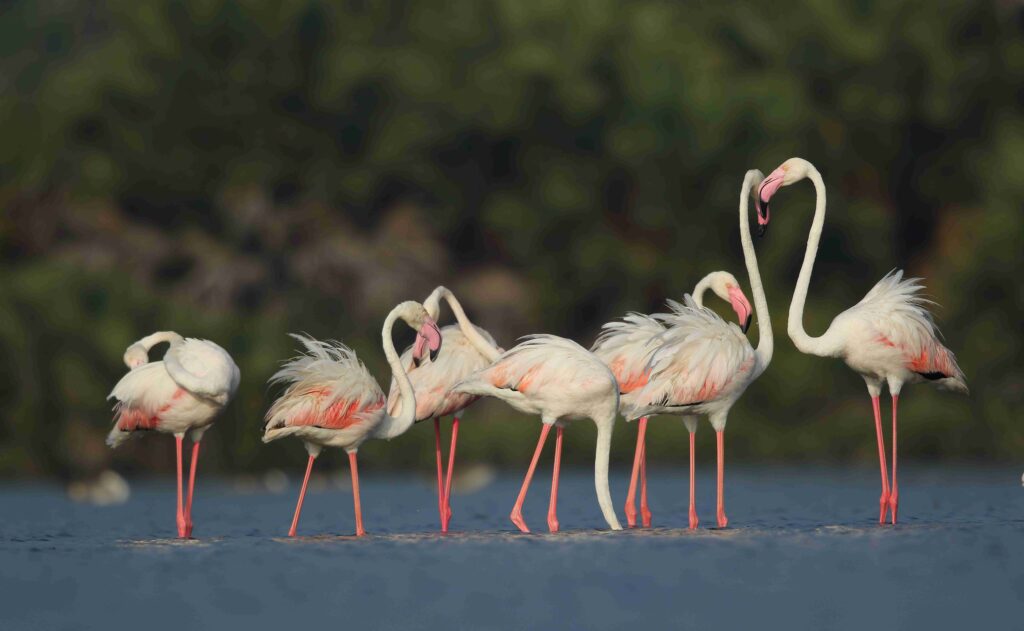
The Role of Sustainability
Sustainability is about meeting our current needs without compromising the ability of future generations to meet theirs. It involves balancing economic growth, social inclusion, and environmental protection. When we integrate biodiversity into our sustainability efforts, we ensure that our natural resources are used wisely and conserved for the future.
The Business Case for Biodiversity
For businesses, embracing biodiversity and sustainability is not just a moral obligation; it’s a smart strategy. Companies that prioritize these values often see numerous benefits, including:
- Enhanced Reputation: Consumers and investors are increasingly favoring companies that demonstrate environmental responsibility. By showing a commitment to biodiversity, your business can build a positive image and attract a loyal customer base that values sustainability.
- Risk Management: Healthy ecosystems can mitigate risks related to climate change, such as extreme weather events. For instance, forests and wetlands can act as natural buffers against floods and storms, reducing potential damage to infrastructure and operations.
- Innovation and Efficiency: Sustainable practices often lead to innovative solutions and more efficient use of resources, reducing costs in the long run. For example, adopting biodiverse agricultural practices can improve soil health and crop yields, leading to more resilient and productive farming systems.
- Market Opportunities: There is a growing market for eco-friendly products and services, providing new business opportunities. Consumers are willing to pay a premium for products that are sustainably sourced and produced, opening up new revenue streams for businesses that prioritize biodiversity.
Biodiversity Sri Lanka (BSL)
To make a meaningful impact, we invite you to join Biodiversity Sri Lanka (BSL). BSL is a platform that brings together businesses committed to biodiversity conservation and sustainable practices. By becoming a member, you can:
- Collaborate: Work with other like-minded businesses to share knowledge and best practices. BSL provides a network where you can learn from the experiences of others and develop joint initiatives that amplify your impact.
- Report: Engage in biodiversity reporting to track and communicate your conservation efforts. Transparent reporting helps build trust with stakeholders and demonstrates your commitment to sustainability.
- Support: Contribute to projects that protect and restore Sri Lanka’s unique ecosystems. BSL facilitates various conservation projects that you can support, ensuring that your efforts are directed towards impactful and scientifically-backed initiatives.
Take Action Today
Your involvement through BSL can make a significant difference. Together, we can create a sustainable future where businesses thrive in harmony with nature. Let’s lead by example and show that economic success and environmental stewardship go hand in hand.

Boosting Sri Lanka’s Circular Conversion: The PLASTICS Project
Biodiversity Sri Lanka (BSL) is playing a pivotal role through the PLASTICS project, an ambitious, multi-partner initiative aimed at promoting a sustainable and circular economy for plastics in Sri Lanka. Funded by the EU’s SWITCH-Asia program, this 48-month project is designed to boost economic development in the plastics value and supply chains (V/SC) by supporting Small and Medium Enterprises (SMEs) through innovative approaches to resource efficiency, green finance, and sustainable waste management.
The overall objective of the project is to facilitate sustainable and innovative plastic minimisation and management in Sri Lanka by integrating SMEs in greener value and supply chains, thereby contributing to economic prosperity and environmental sustainability.
The four main outputs of the PLASTICS project are:

BSL’s Key Goals are Activity 3 and Activity 4.
Activity 3: Access to green finance and Investment’s dimension are increased to scale up green economic initiatives, especially among Businesses
Activity 4: The traceability, transparency, and compliance in plastic SWM are strengthened through public-private dialogue, collaboration and monitoring
A Focus on SMEs and Green Finance
The project aims to engage 150 SMEs, 10 entrepreneurs, and 50 Business Development Service providers to foster a collaborative environment for green business development. BSL’s work under Activity 3 involves engaging the SMEs in the circular economy, and creating awareness of green financing options. These awareness sessions, held in Colombo, Gampaha, and Kalutara in August and September 2024, encouraged SMEs to rethink their business models, adopting more sustainable and resilient approaches that align with circular economy principles.
Event held for SMEs in Colombo at the BMICH on 15 August 2024
Event held for SMEs in Kaluthara at the Royal Oshin hotel on 12 September 2024
Event held for SMEs in Gampaha at the KayJay hotel on 13 September 2024
Why promote a Circular Economy?
A circular economy promotes efficient use of resources, reducing waste by encouraging the reuse and recycling of materials. For businesses, especially in sectors that use plastics, adopting circular economy practices means less dependency on raw materials, cost savings, and compliance with evolving environmental regulations. Climate change is also a significant business risk, and understanding how to mitigate its impacts—while taking advantage of green finance options—can help businesses remain competitive in an increasingly eco-conscious market.
BSL is at the forefront of helping SMEs in Sri Lanka navigate these challenges, providing valuable insights into the circular economy and green financing incentives. These efforts are particularly focused on women-led businesses, helping them improve their competitiveness, expand their value addition, and access resources for scaling up sustainable practices.
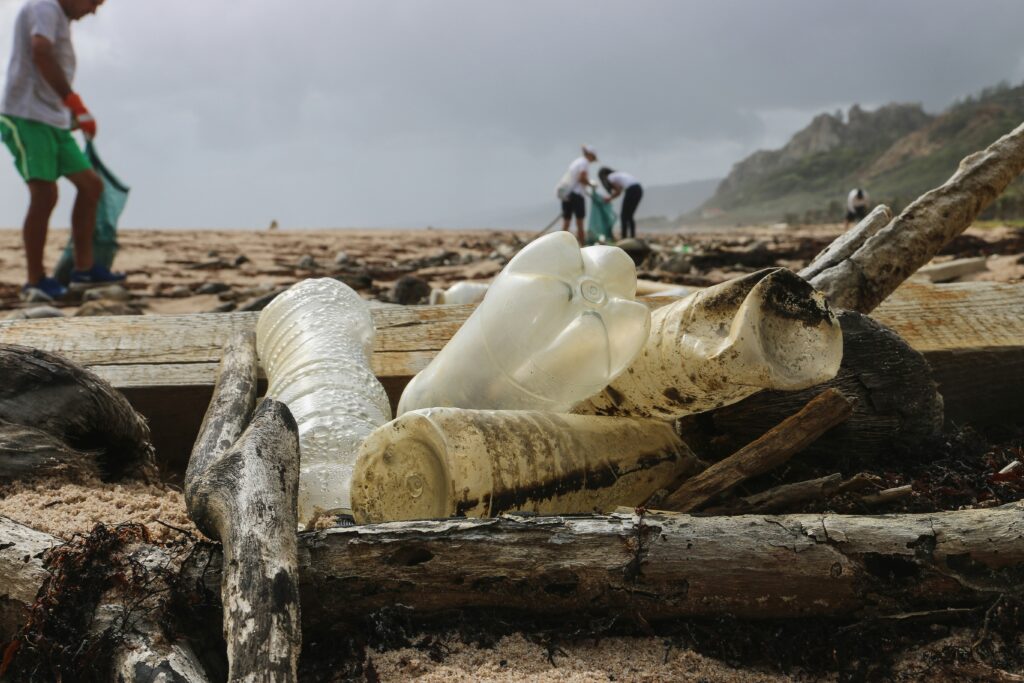
Extended Producer Responsibility (EPR)
Another vital aspect of BSL’s contribution is through Activity 4, which focuses on advancing Extended Producer Responsibility (EPR) in Sri Lanka. EPR shifts the responsibility for post-consumer plastic waste management onto producers, ensuring they play a key role in the entire lifecycle of their products—from production to disposal. This strategy encourages responsible manufacturing and supports the proper collection and recycling of plastics.
In August 2024, BSL co-hosted the EPR Symposium in collaboration with the Ceylon Chamber of Commerce, bringing together industry leaders, policymakers, and environmental advocates to discuss how innovation can help advance environmental responsibility. The symposium was a unique opportunity to celebrate the progress made in promoting EPR in Sri Lanka, and to explore new frontiers in sustainable plastic management. By focusing on collaboration and innovation, BSL is helping Sri Lankan businesses take ownership of their environmental impact, ensuring that sustainability becomes a core part of their business strategies.
Looking Forward
With continued support from BSL and its partners, the PLASTICS project is paving the way for a sustainable future for Sri Lanka’s plastics industry. By promoting circular economy principles, facilitating access to green finance, and strengthening waste management frameworks, the project is helping businesses – both large and small – contribute to environmental conservation while improving their own resilience and competitiveness.
Through initiatives like the LIFE Series of projects and active collaboration with government agencies, BSL is ensuring that the private sector remains a powerful force for positive change in Sri Lanka’s journey towards sustainability.
Keep an eye on our newsletter for more updates on this transformative project, and find out how you can get involved in shaping a greener, more sustainable future for Sri Lanka.

Private Sector Commitment to Restore Sri Lanka’s Blue Carbon Ecosystems

Biodiversity Sri Lanka (BSL), in partnership with its members, government bodies, and conservation groups, continues to champion environmental stewardship through innovative restoration projects. One of BSL’s standout initiatives is the Life to Our Mangroves (LOM) project, which is dedicated to the restoration and preservation of vital blue carbon ecosystems in Sri Lanka.
The significance of blue carbon ecosystems, such as mangroves, lies in their ability to sequester large amounts of carbon, thereby playing a crucial role in combating climate change. Mangroves, with their dense root systems, stabilise coastlines, reduce erosion, and provide critical habitats for various species. Unfortunately, Sri Lanka’s mangrove forests have faced severe degradation, especially due to human activities like shrimp farming.

Plot 05

Plot 07

Planted mangroves
The LOM project, a key example of BSL’s vision for ecological conservation, began with a Memorandum of Understanding (MOU) signed between BSL and the Department of Wildlife Conservation. The Wayamba University too has come on board providing technical and scientific advice. The initial phase of this ambitious project focused on the restoration of 10 hectares of degraded land within the Anawilundawa Ramsar Wetland Sanctuary in the North Western Province. This sanctuary is a critical habitat for many species, but decades of intensive shrimp aquaculture between the 1980s and 1990s severely disrupted the area’s natural ecosystems. By the late 1990s, the land was abandoned, but the damage from artificial barriers and pond dikes had already interrupted the natural hydrological flows necessary for the area’s regeneration.
With the assistance of the Wayamba University, the project has adopted a science-based approach to restore the natural water flow in the sanctuary. By studying the land’s contours and reintroducing tidal patterns, the project has effectively allowed water levels to regulate naturally, promoting sediment deposition and preparing the land for mangrove growth. As of now, 2.95 hectares have been successfully restored with native mangrove species, and an additional 3.08 hectares are in the process of preparation and planting. Looking forward, BSL plans to rehabilitate 7.9 hectares of land with mangrove associates and dry-zone plant species to recreate the natural ecosystem that once flourished in the area.
The success of the LOM project is largely driven by an impressive public-private partnership model. BSL’s efforts are supported by a growing number of key corporate partners such as Sampath Bank PLC, National Development Bank PLC (NDB), Citizens Development Business Finance PLC (CDB), Dole Lanka (PVT) Ltd, Easwaran Brothers Ceylon (Pvt) Ltd, Dynawash Limited, Virtusa (Pvt) Ltd, LOLC Finance PLC, Dilmah Conservation, and Amana Bank. These organisations, by signing MOUs with BSL, are actively contributing to the restoration of Sri Lanka’s blue carbon ecosystems. Their involvement demonstrates how private sector engagement can enhance environmental conservation efforts, setting a precedent for future collaborations.

This collective endeavor serves as a powerful model of sustainable partnerships in environmental stewardship. Not only does the project focus on ecosystem restoration, but it also reinforces the importance of corporate responsibility in combating climate change and promoting biodiversity. Through the LOM project, BSL is setting an example of how collaboration between the private sector, government bodies, and conservation organisations can lead to meaningful, long-term environmental impact.
With further restoration efforts on the horizon, the Life to Our Mangroves project is poised to leave a lasting positive imprint on Sri Lanka’s coastal ecosystems, contributing to the preservation of biodiversity and the mitigation of climate change.
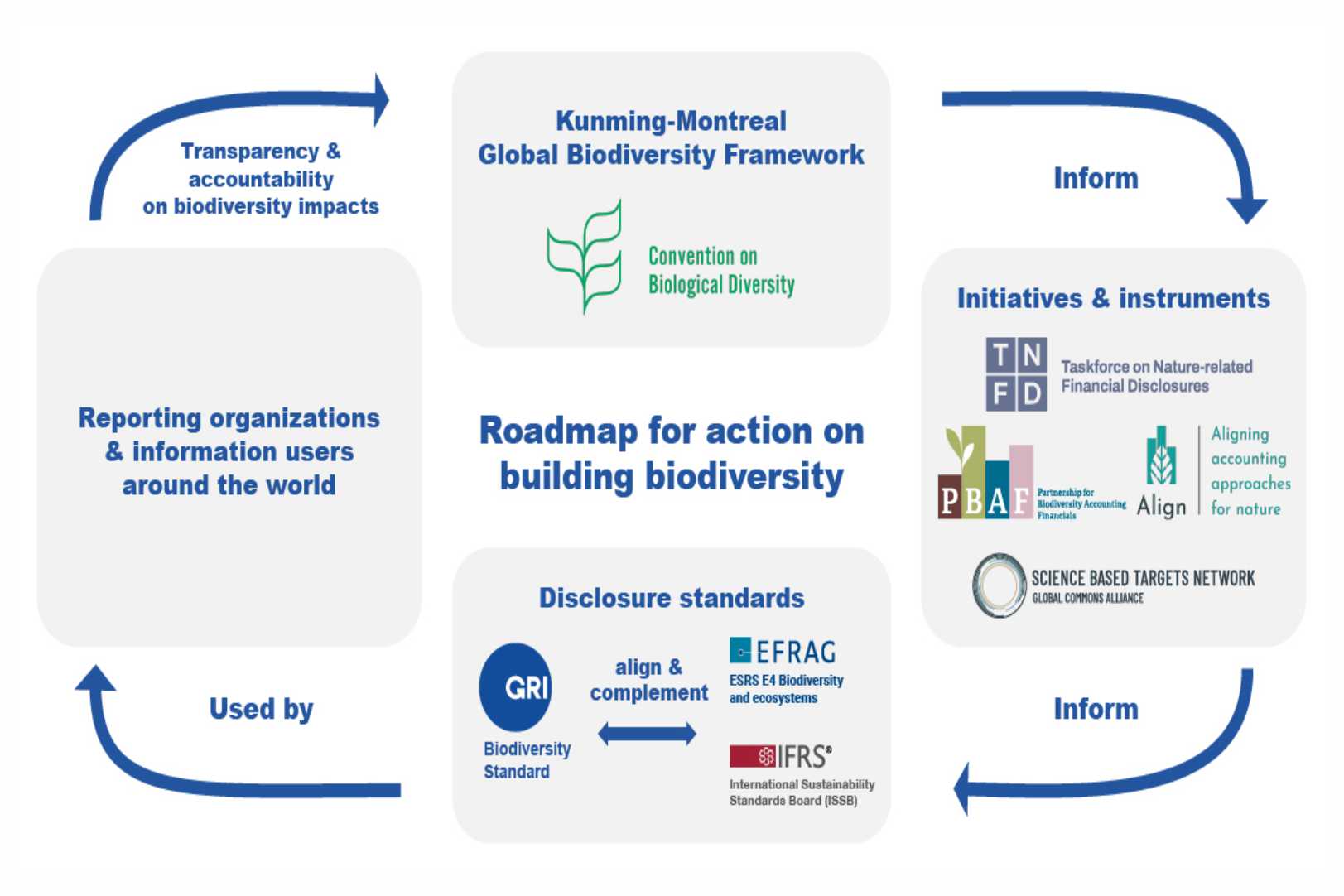
The Business Case for Enhanced Biodiversity Reporting
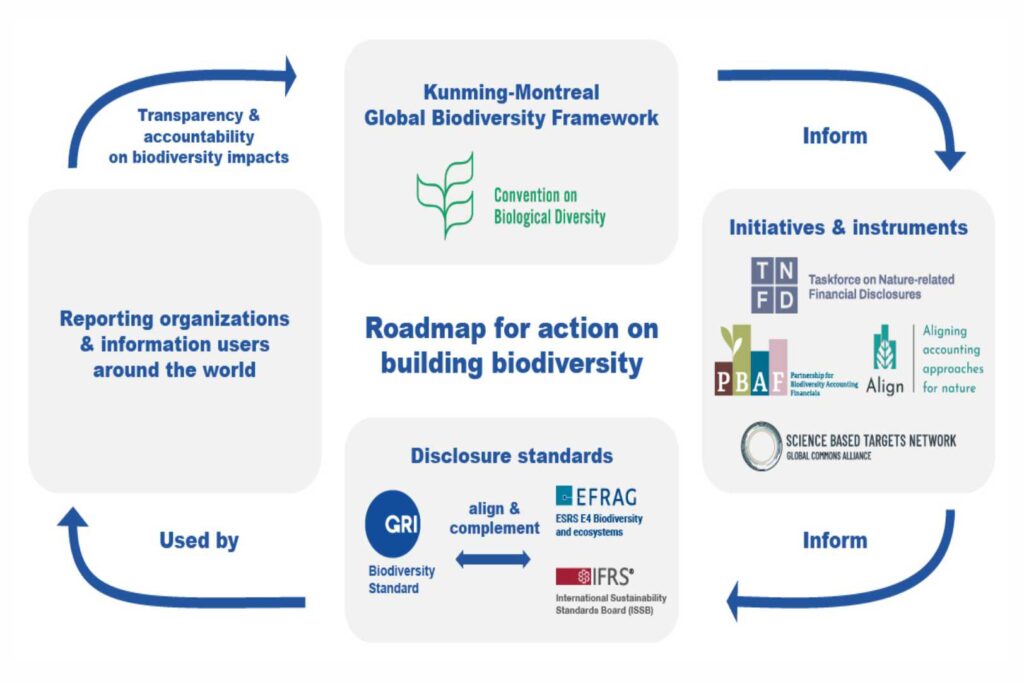
Biodiversity reporting has become a critical focus for businesses, especially in light of new international regulations. The Global Data and Biodiversity Framework (GDF), established at COP 15, emphasises the importance of understanding various regulations, such as the EU’s Deforestation Regulation, which directly impacts supply chains. Companies involved in exports must prepare for due diligence regarding their biodiversity impacts, ensuring compliance with these emerging standards.
Many organisations face significant challenges in data collection and reporting, which are essential for demonstrating their sustainability efforts. To address these challenges, tools like the European Sustainability Reporting Standards (ESRS) and the Corporate Sustainability Due Diligence Directive (CSDDD) are recommended to enhance reporting practices and ensure transparency in operations.
Implementing Initiatives
Financial implications are also paramount, as businesses will need to account for their ecological impacts in financial statements. The upcoming International Financial Reporting Standards (IFRS) will require companies to quantify their biodiversity dependencies and impacts, making proactive environmental management crucial. Current actions taken by businesses will shape future reports, highlighting the importance of long-term planning.
Successful examples of companies implementing biodiversity initiatives illustrate that collaboration across sectors is vital for effective biodiversity management. Addressing biodiversity is not just a regulatory requirement; it also presents an opportunity for businesses to showcase their commitment to sustainability.
Impacts and Dependencies
Key frameworks like the Taskforce on Nature-related Financial Disclosures (TNFD) can help businesses identify and assess nature-related risks and opportunities. TNFD’s integrated approach for the identification and assessment of nature-related issues called the LEAP approach is designed for use by organisations of all sizes and across all sectors and geographies. By employing a LEAP framework, companies can better understand their impacts and dependencies on biodiversity.
Globally, businesses are urged to adopt comprehensive reporting practices and engage in collaborative efforts to enhance resilience while contributing positively to environmental conservation. By understanding their value chains and interactions with nature, companies can effectively manage risks associated with biodiversity loss while seizing opportunities for sustainable growth.
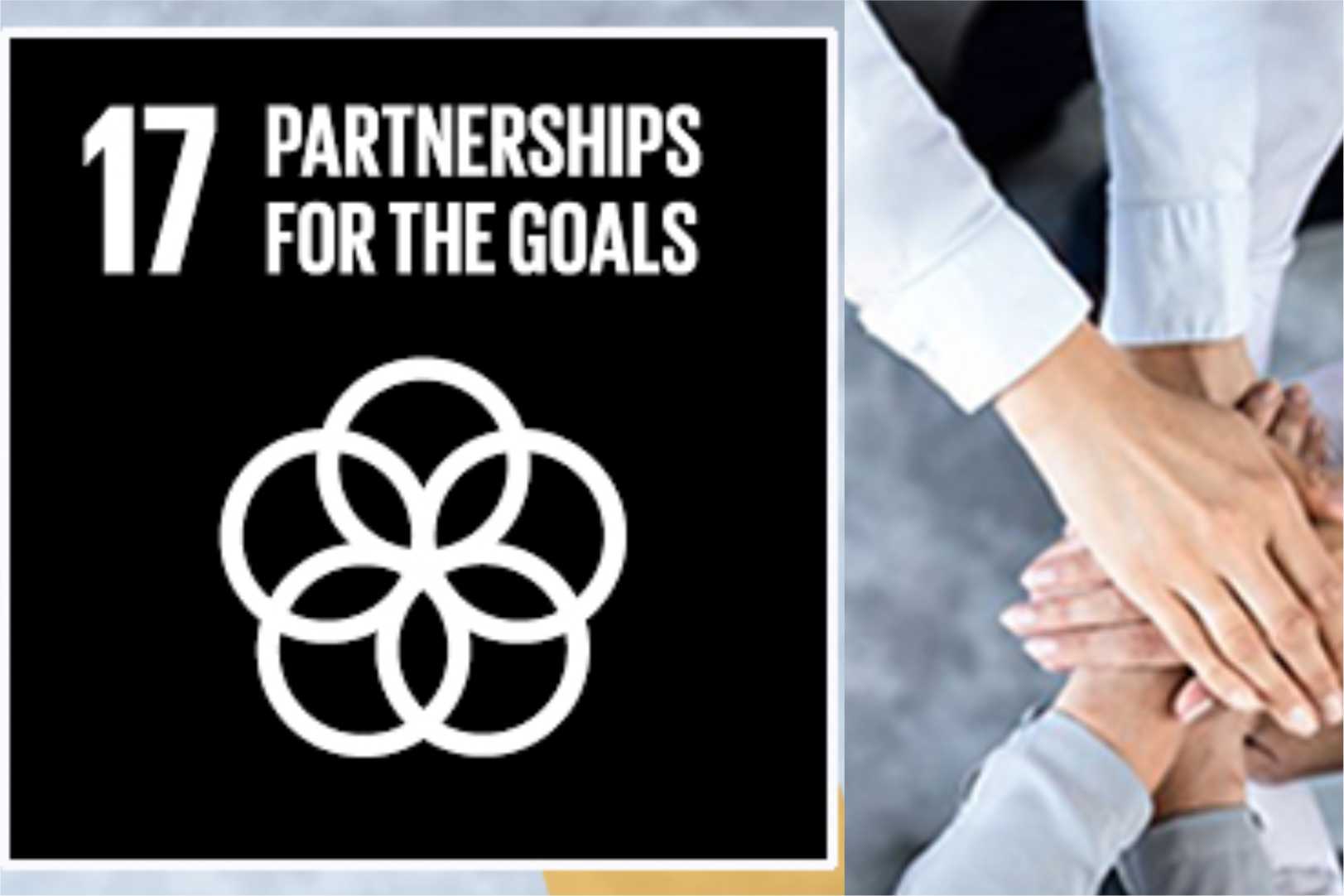
Private Sector Driving National Initiatives
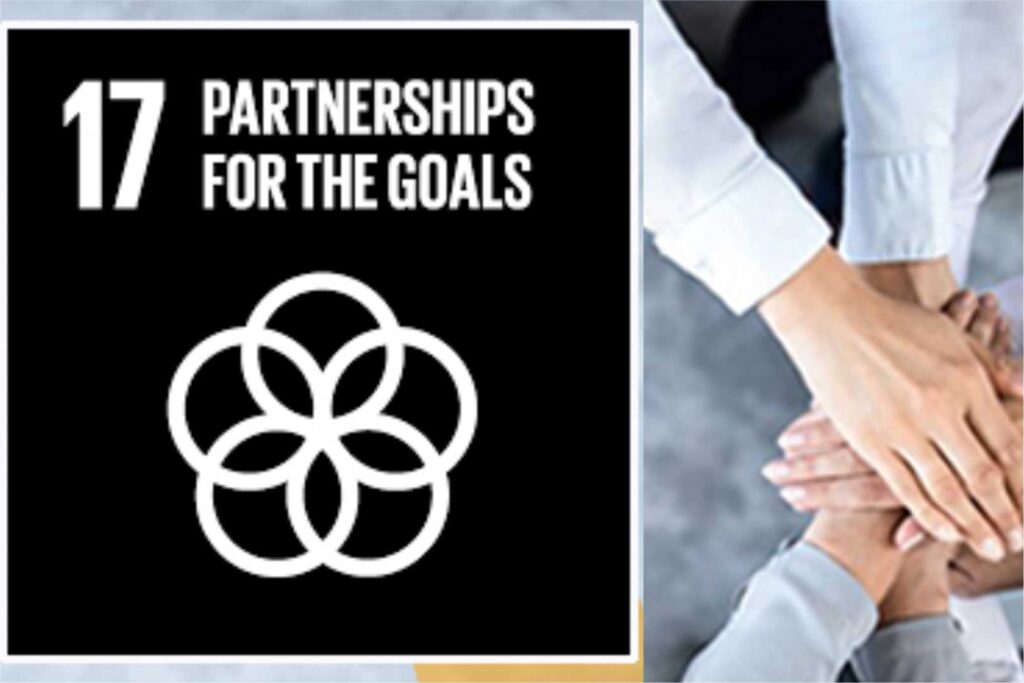
Sri Lanka is making significant efforts to protect its biodiversity and align with global environmental initiatives. One of the key steps the country has taken is the formation of the National Biosecurity Team to implement the goals set by the Convention on Biological Diversity (CBD), which Sri Lanka ratified in 1994. These efforts aim to develop sustainable practices across various sectors, with a focus on fostering harmony between people and nature by 2050. However, the government alone cannot achieve these ambitious goals. The involvement of the private sector is crucial for making meaningful progress.
The National Biodiversity Strategic and Action Plan (NBSAP) outlines 20 strategic targets aimed at conserving biodiversity and promoting sustainable development. These targets address a wide range of areas, from raising public awareness and integrating biodiversity into national economic policies, to protecting ecosystems and promoting sustainable resource management. Some targets specifically call on the private sector to engage in biodiversity conservation, disclosing their environmental impacts and adopting sustainable practices.
New Approaches to Landscape Management
Despite having strong frameworks in place, the government faces challenges in implementing many of these targets. For example, there are six comprehensive plans for nature-based tourism developed by the World Bank’s Ecosystem Conservation and Management Project (ESCAMP), but they remain inactive due to funding challenges. These plans, if activated, could bring in local and international visitors, boosting the economy and fostering sustainable tourism. The private sector’s involvement in such initiatives could unlock tremendous potential and help bring these dormant projects to life.
Another area where private sector involvement is critical is in landscape management. There are two well-developed plans for biodiversity-rich areas prepared by ESCAMP. One such plan is the Sinharaja Forest Range Landscape Management Plan. The other such comprehensive plan is the Hurulu-Kaudulla-Kanthale Landscape Management Plan. Businesses have an excellent opportunity to invest in sustainable practices within these landscapes, benefiting from their natural beauty and contributing to long-term conservation efforts. By working together with the government and other stakeholders, the private sector can help realize the full potential of these regions and play a key role in preserving Sri Lanka’s natural heritage.
Funding Biodiversity Management
The biggest obstacle to implementing many of these sustainable initiatives is the lack of financial resources. Here, the private sector can step in by co-financing projects that need funding to get started. Whether through direct investments, partnerships, or other funding arrangements, businesses can help support sustainable tourism, conservation, and biodiversity management projects.
The government is eager to collaborate with the private sector and is open to showcasing potential projects where partnerships can lead to meaningful progress. Through these collaborations, both the private sector and the government can achieve greater success in driving sustainable initiatives that benefit the environment and the economy.
Unlocking Potential through Collaboration
The active participation of the private sector is essential to achieving Sri Lanka’s biodiversity and sustainability goals. By fostering collaborative partnerships with the government and other stakeholders, businesses can help overcome financial and operational challenges while making a significant positive impact on both the economy and the environment.
Together, we can leverage resources, share knowledge, and drive innovative solutions to create a sustainable future that not only benefits nature but also enhances economic growth and community resilience. Engaging in these partnerships will not only pave the way for sustainable development but also position the private sector as a leader in environmental stewardship. Biodiversity Sri Lanka is committed to make this a reality.
Derived from the discussions that took place on this subject at the 2024 Annual Technical Sessions of Biodiversity Sri Lanka.
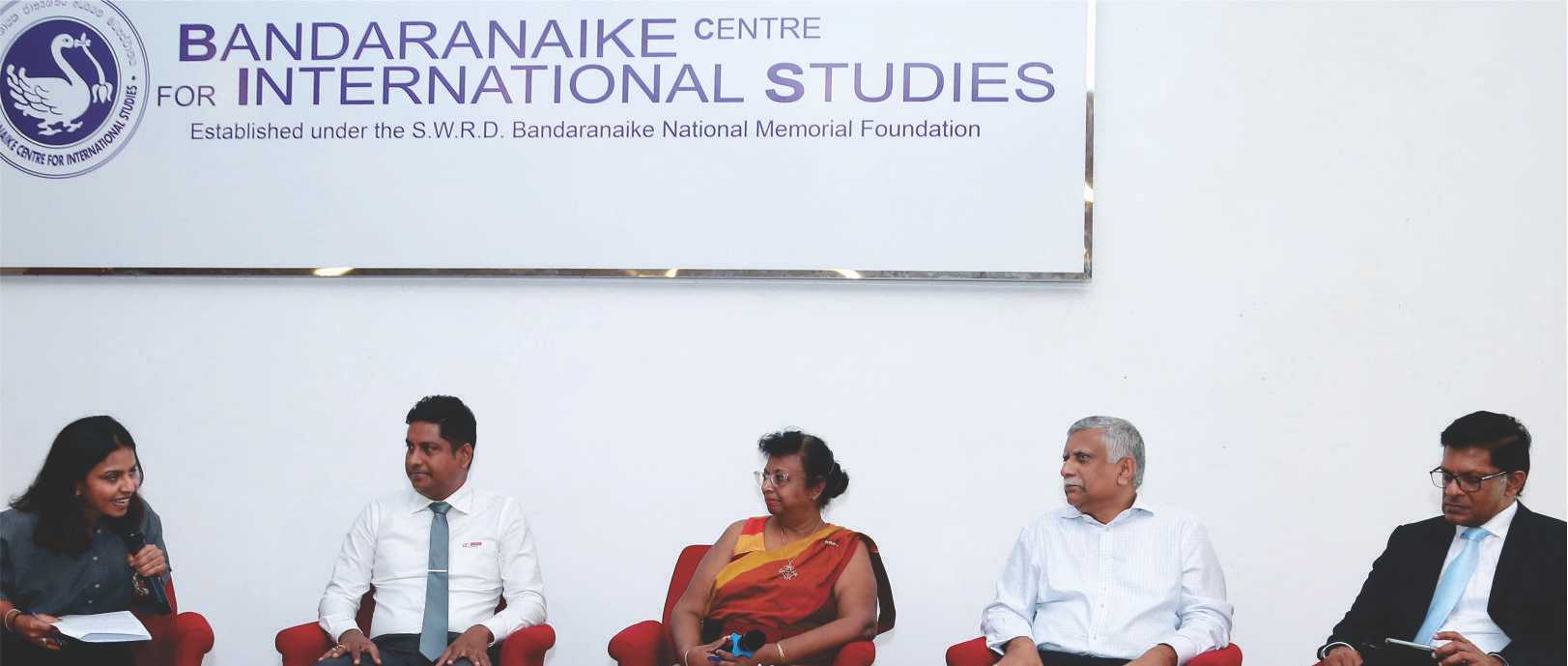
Reporting on Nature and Biodiversity
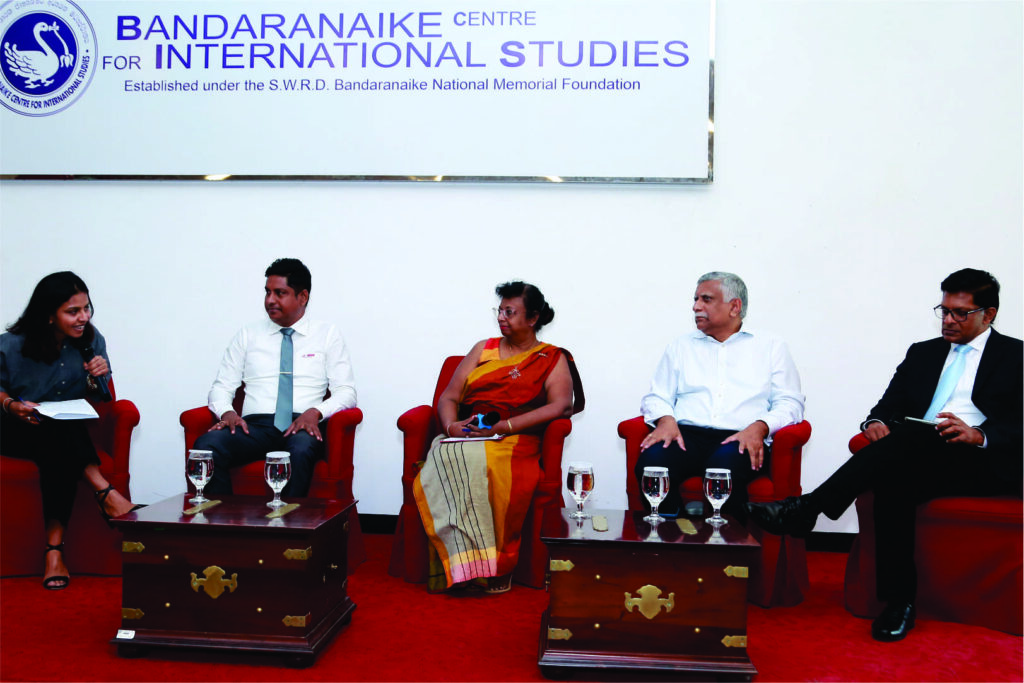
The First Segment of Biodiversity Sri Lanka’s 9th Annual Technical Sessions held in early September 2024 was titled: “Corporate Reporting on Nature and Biodiversity: What’s Next?”, focused on the growing importance of integrating biodiversity considerations into corporate sustainability reporting. With biodiversity loss accelerating, businesses are increasingly expected to report their impacts and dependencies on nature, alongside their traditional environmental and financial disclosures.
Session Overview
The session emphasised the shift toward more comprehensive corporate reporting, where nature and biodiversity are viewed as critical components of sustainability. Many companies are now facing pressure from investors, regulators, and stakeholders to disclose how their operations affect ecosystems and what steps they are taking to mitigate these impacts. The panel discussion delved into the evolving frameworks that businesses can adopt to incorporate biodiversity into their Environmental, Social, and Governance (ESG) reports, while also exploring the challenges and opportunities in this field.
Resource Persons
The session featured distinguished experts, with Ms. Pyumi Sumanasekera delivering the Keynote Address. The interesting panel discussion was moderated by Head of Sustainability/Senior Assistant Vice President of John Keells Holdings Ms Anosha Koralage. The panelists from both the private sector and environmental organisations included Executive Director of UN Global Compact Mr Rathika de Silva, Executive Director/Chief Financial Officer of DIMO Mr Suresh Gooneratne, and Senior Manager – Sustainability & CSR of INSEE Cement Mr Suresh Lakmal, Consultant – Ministry of Environment Dr Jinie Dela. The panelists discussed global trends in nature-related financial disclosures, the tools available to businesses for assessing their impacts on biodiversity, and the steps Sri Lankan companies can take to lead in this growing area of corporate accountability.

Reporting on Nature and Biodiversity
Ms. Pyumi Sumanasekera’s presentation outlined the critical need for Sri Lankan companies to report on their biodiversity impact. With many global industries—especially those reliant on natural resources—facing biodiversity risks, reporting on nature is becoming essential for businesses. The presentation emphasized that corporate sustainability reporting frameworks are evolving to include biodiversity metrics, allowing companies to better understand their dependencies on ecosystems and the impact of their operations on natural capital.
Nature-related risks can disrupt business operations and supply chains, particularly in industries such as agriculture, fisheries, and tourism, which are vital to Sri Lanka’s economy. The integration of biodiversity into corporate reports can help companies assess and manage these risks while contributing to global and national conservation efforts. Inaction on biodiversity could lead to reputational damage, financial risks, and increased regulatory pressures.
Panel Discussion Highlights
The panel discussed practical ways to incorporate nature-related disclosures into existing reporting frameworks and highlighted the importance of partnerships between businesses, government agencies, and conservation groups. This collaboration is key to driving action on biodiversity protection while maintaining economic resilience.
- The need for companies to integrate nature into their climate transition strategies.
- How frameworks like the Global Reporting Initiative (GRI) and Task Force on Climate-related Financial Disclosures (TCFD) are being adapted for biodiversity.
- The role of businesses in addressing biodiversity loss as part of a holistic approach to sustainability.
By adopting best practices in biodiversity reporting, Sri Lankan businesses can not only contribute to environmental sustainability but also strengthen their position in the global market as responsible and forward-thinking companies.
Call to Action
Session 1 concluded with a call to action for Sri Lankan businesses to embrace biodiversity reporting. The discussion underscored the necessity for companies to not only address climate change but also biodiversity loss, which is deeply interconnected with their long-term sustainability. Through better reporting practices and collaboration, businesses can protect Sri Lanka’s natural resources and contribute to a healthier, more sustainable future.

Step Up for Nature: Why Sri Lanka’s Private Sector Must Join Forces for Biodiversity!
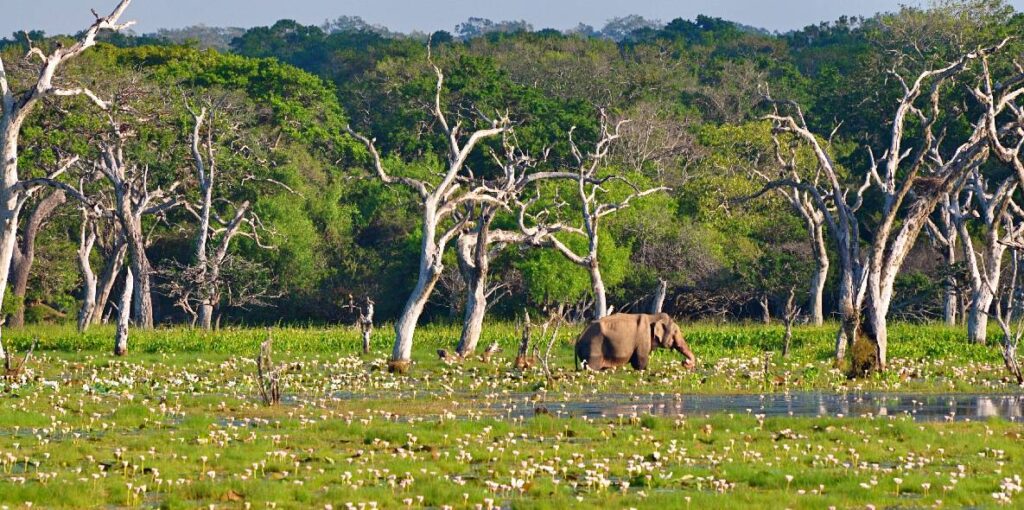
As the world faces accelerating climate change, dwindling resources, and increasing social expectations, traditional business models are quickly becoming obsolete. Sustainability is no longer just an ethical choice—it’s essential for long-term success and resilience of the business environment. Today’s forward-thinking businesses understand that responsible resource management isn’t just about survival; it’s about thriving in a future where environmental and social risks will shape the market. While many global companies have made strides by setting sustainability goals and improving supply chains, the urgency of the climate crisis shows that progress must be faster and more impactful. Now, sustainability isn’t just a trend—it’s the new standard for global competitiveness and innovation.
With Sri Lanka’s natural resources under increasing pressure, businesses have a huge role to play in preserving the island’s stunning biodiversity. While traditionally seen as the responsibility of governments and NGOs, protecting our environment is no longer a side issue for companies—it’s becoming essential for the long-term success of local enterprises. Established
Established in 2012 by the Ceylon Chamber of Commerce as the Sri Lanka Business and Biodiversity Platform, and then incorporated as Biodiversity Sri Lanka, BSL is a unique private-sector-driven network that provides the perfect opportunity for Sri Lankan companies to step up, make a difference, and be recognised as sustainability leaders.

Biodiversity in Sri Lanka
Sri Lanka ranks among the world’s top biodiversity hotspots, boasting over 3,000 species of flowering plants, 250 species of birds, and nearly 125 species of mammals. However, more than 33% of its plant species and half of its amphibians are endemic, meaning they exist nowhere else on earth. Alarming trends show that deforestation, climate change, and human activity are placing this precious biodiversity at risk. The private sector in Sri Lanka, as a major economic driver, holds the key to reversing these trends.
Despite efforts from the government and non-profits, Sri Lanka loses around 8,000 hectares of forests each year according to estimates published by the UN-REDD Programme in 2017. While one in every four species is considered threatened in Sri Lanka, private sector companies, large and small, can change this by actively participating in conservation efforts and adopting sustainable practices.
Boosting your CSR Impact
Consumers and investors are now evaluating companies not just on profits but on their contribution to social and environmental good. According to a recent Deloitte survey, 58% of consumers now actively seek companies that align with their values, including sustainability. Biodiversity Sri Lanka offers a platform where businesses can channel their Corporate Social Responsibility (CSR) efforts into impactful biodiversity projects, such as the ongoing Life to Our Forests initiative in Kanneliya, which focuses on restoring Sri Lanka’s forests, one of the most biodiverse areas in the country.
Joining Biodiversity Sri Lanka lets your company align with crucial conservation goals while enhancing your CSR footprint. Whether it’s sponsoring tree planting initiatives, protecting mangroves, or financing wildlife conservation, you’ll be directly involved in projects that make a difference.
Enhancing ESG Credentials
The Environmental, Social, and Governance (ESG) criteria are increasingly influencing investment decisions. Studies show that companies with strong ESG practices tend to outperform their peers financially. In fact, firms with higher ESG ratings have 28% higher returns compared to those lagging behind, according to a report by McKinsey & Company. Biodiversity Sri Lanka can help Sri Lankan companies strengthen their ESG credentials by providing a structured approach to biodiversity conservation, complete with measurable impacts and international visibility.
For instance, by participating in Biodiversity Sri Lanka-led initiatives like wetland conservation or agroforestry projects, businesses can showcase tangible contributions to biodiversity in their sustainability reports, appealing to both investors and eco-conscious consumers.
A Global Network of Expertise
Biodiversity Sri Lanka is not just a local initiative—it’s connected to global giants like the International Union for Conservation of Nature (IUCN), the World Business Council for Sustainable Development (WBCSD), and the Global Partnership for Business and Biodiversity (GPBB). These partnerships bring international expertise, funding opportunities, and innovative ideas to Sri Lanka’s biodiversity conservation landscape while focusing on scientific approaches.
When your company joins Biodiversity Sri Lanka, you tap into this wealth of knowledge and collaboration, gaining access to resources and strategies that align with global best practices. Whether it’s sustainable agriculture, waste management, or climate change adaptation, Biodiversity Sri Lanka provides the tools, expertise, and networks to help businesses succeed in sustainability efforts.
Working to Achieve Global Goals
Sri Lanka is a signatory to the Convention on Biological Diversity (CBD) and has committed to achieving the UN Sustainable Development Goals (SDGs). Private sector engagement is critical for achieving these ambitious biodiversity targets, particularly in protecting ecosystems, restoring habitats, and halting species loss. Biodiversity Sri Lanka actively aligns its work with these international frameworks, giving companies an easy entry point to contribute to global biodiversity and sustainability goals.
By joining Biodiversity Sri Lanka, your company will be part of a movement that is driving positive change locally while contributing to global initiatives like the Paris Agreement on Climate Change and the Aichi Biodiversity Targets.
How You Can Join Hands with BSL
Biodiversity Sri Lanka offers flexible opportunities for private sector engagement, recognising that every business has unique capabilities and interests. Here are a few ways for your business to contribute:
Many Biodiversity Sri Lanka members have been involved in supporting on-the-ground conservation work such as reforesting degraded lands, restoring mangrove ecosystems, and protecting wildlife corridors. For example, Biodiversity Sri Lanka’s mangrove restoration project is helping safeguard coastal ecosystems from erosion and climate change impacts.
While understanding the broad benefits of reversing the trend in environmental degradation, most companies are reluctant to begin intervening in natural ecosystem restoration as this requires specialised knowledge and long-term time involvement. BSL has recognised the fact that such businesses need technical support as well as assistance in liasing with government stakeholders. Using many years of experience in facilitating field-based interventions and leveraging on its strong relationship with the public sector in Sri Lanka, BSL has now packaged its field activities to offer the LIFE Series of projects to the private sector. The LIFE Series currently comprises of five pathways for corporate involvement in nature-positive environmental interventions at a national level:
- Life to Our Forests (LOF) – Restoration of a degraded fern land in the Kanneliya Forest Reserve in collaboration with the Forest Department and IUCN with the objective of creating a legacy of conservation for generations to come by preserving the biodiversity of Sri Lanka’s rainforests.
- Life to Our Mangroves (LOM) – Restoration of mangrove ecosystems to showcase private sector engagement in achieving national biodiversity conservation and climate action goals. This project promotes Accelerated Natural Regeneration of Mangroves (ANRM) to increase carbon sequestration and boost ecosystem services of degraded mangrove ecosystems in collaboration with Wayamba University and the Department of Wildlife Conservation.
- Life to Our Coral Reefs (LOCR) – This is an initiative of Biodiversity Sri Lanka to showcase private sector commitment to conserve Sri Lanka’s blue resources. In collaboration with the Department of Wildlife Conservation, IUCN and the Blue Resources Trust, the project empowers local communities to adopt sustainable practices that safeguard vital ocean resources.
- Life to Our Beaches (LOB) – By empowering local communities – particularly women – to take care of their beaches as a viable livelihood option, this project provides a pathway for the private sector to protect Sri Lanka’s shores with the support of the Marine Environment Protection Authority (MEPA).
- Life to Our National Parks (LONP) – This is a collaborative initiative of Biodiversity Sri Lanka to showcase private sector engagement in enriching wildlife habitats. The project engages surrounding communities in the removal of Invasive Alien Plant Species (IAPS) in national parks by supporting livelihoods that restore wildlife habitats. This is a collective effort of BSL and the Federation of Environmental Organisations (FEO) together with the Department of Wildlife Conservation.
Biodiversity Sri Lanka encourages businesses to work closely with government agencies and NGOs through the LIFE Series of projects that focus on providing economic benefits to local communities while safeguarding natural ecosystems. This could include supporting rural livelihoods through sustainable farming initiatives, promoting eco-tourism, or funding biodiversity research.
With science and technology constantly evolving to monitor, report, and streamline environmental interventions, Biodiversity Sri Lanka provides capacity-building opportunities for businesses to learn how they can integrate biodiversity conservation into their operational practices. This is organized through the BSL Academy which organises workshops on sustainable agriculture, eco-friendly business models, biodiversity management, sustainability reporting, and so on.
Companies that join Biodiversity Sri Lanka can use their voice to advocate for better environmental policies, aligning with national efforts to strengthen Sri Lanka’s biodiversity laws and protection measures. As a well-respected entity by the Government, BSL has been advocating for more stringent policies to protect and conserve Sri Lanka’s natural resources.
Is Your Organisation Eligible?
Biodiversity Sri Lanka’s membership is open to any company that recognises the need for environmental sustainability and wants to be part of the solution in a pragmatic manner. The platform already includes some of the country’s leading corporates across industries like agriculture, tourism, manufacturing, and finance. Becoming a member of Biodiversity Sri Lanka will provide the ideal platform for driving environmental impact and aligning with both local and global sustainability trends if your business:
- Relies on natural resources (e.g., agriculture, fisheries, forestry)
- Operates in sectors affected by environmental change (e.g., real estate, tourism)
- Has a large environmental footprint (e.g., manufacturing, transportation)
- Sees the potential for nature-based investments (e.g., banking, renewable energy, recycling)
- Seeks to improve its ESG ratings or CSR impact
It is Now Time to Act Together
In 2023, a UN report warned that without urgent action, one million species globally are at risk of extinction due to human activities, including habitat destruction and pollution. Sri Lanka is at a tipping point. Our forests are shrinking, coastal ecosystems are deteriorating, and climate change is intensifying the threats to biodiversity. We’ve already seen alarming declines in species like the Sri Lankan leopard and the purple-faced langur. But there is hope. By committing to biodiversity conservation through platforms like Biodiversity Sri Lanka, your company can be part of the solution. Don’t wait until it’s too late. The time for businesses to act is now. If you are a company operating in Sri Lanka looking to make a lasting difference while also improving your bottom line, joining Biodiversity Sri Lanka is the way forward. Join Biodiversity Sri Lanka today and help protect the natural world that sustains us all. Together, we can ensure that future generations inherit a country as rich in biodiversity as the one we’ve been fortunate enough to enjoy.
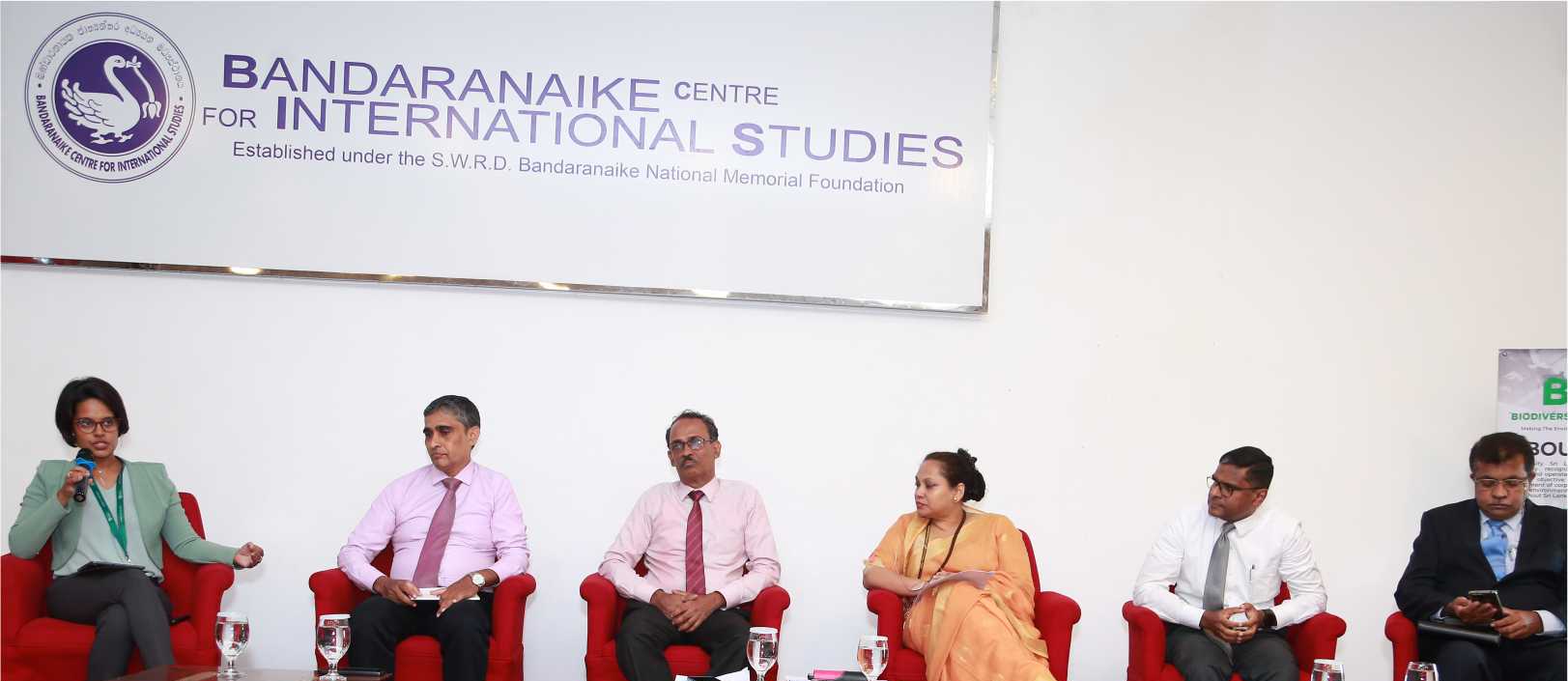
Climate Risks and Green Finance
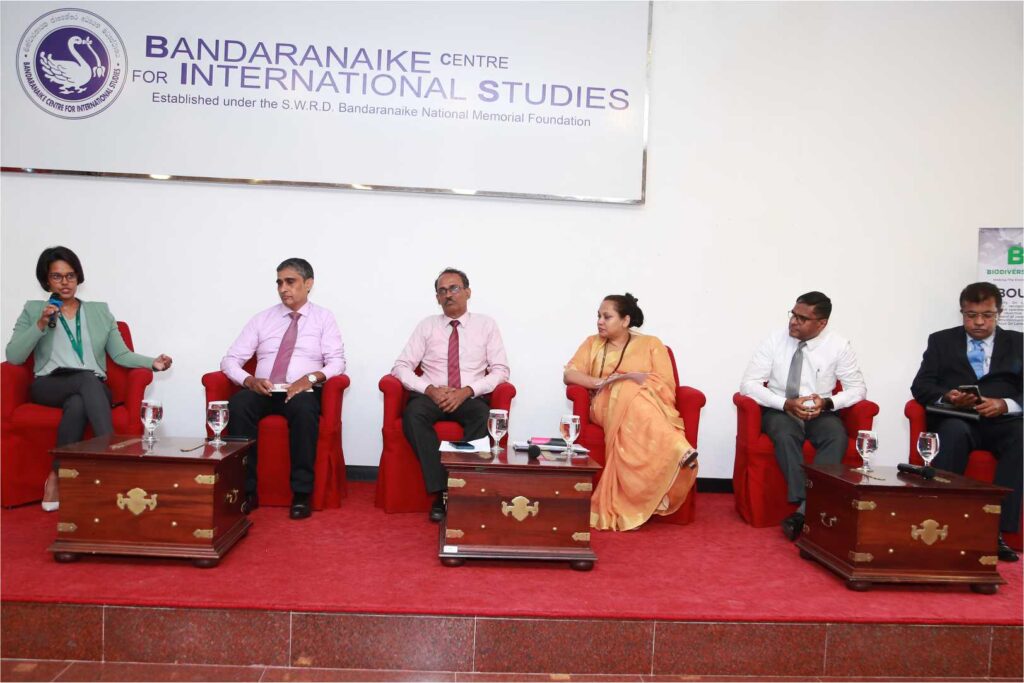
The second segment of Biodiversity Sri Lanka’s Annual Technical Sessions, titled “Climate Risks & Green Finance: Exploring the Intersection”, brought to light the growing convergence between climate change impacts and the financial sector. As climate risks escalate, businesses, particularly in Sri Lanka, must assess how these risks affect their operations, while also exploring green finance as a tool to support climate resilience and sustainable development.
Session Overview
This session focused on the growing intersection of climate risks and green finance, and the need for Sri Lankan businesses to integrate climate resilience into their strategies. Green finance was highlighted as a key tool for funding sustainable projects, enabling companies to reduce their carbon footprint. The private sector, especially banks, was recognised for its crucial role in driving the low-carbon transition through strategic investments.
Resource Persons
The session featured distinguished experts, with Mr Ranga Pallewala delivering the Keynote Address. The interesting panel discussion was moderated by General Manager – Group ESG of Hayleys PLC Ms Prashani Illangasekera. The panelists from both the private sector and state sector Director General – Sustainable Development Council Ms Chamindry Saparamadu, Director Climate Change of the Ministry of Environment Mr Leel Randeni, Vice President (Sustainability & Consulting) of DFCC Bank PLC/DFCC Consulting (Pvt) Mr Nalin Karunatileka, Chief Executive Officer of the National Cleaner Production Center Mr Samantha Kumarasena, and Industrial Development Officer of the Ministry of Industries Mr Lalith Wasantha. The panelists discussed the nexus between climate risks and green finance, global trends in green financing, and the steps Sri Lankan companies need to take to access green finance.
Key themes from the panel discussion:
The panel discussion following the keynote address brought together experts from both the financial and environmental sectors to discuss practical strategies for managing climate risks and advancing green finance in Sri Lanka. Key points from the discussion included:
- Regulation and Policy Support: Panelists emphasised the growing regulatory push for climate-related financial disclosures. Governments and regulators are increasingly holding businesses accountable for their climate impact, which is expected to lead to better risk management and transparency. Sri Lanka is no exception, with evolving policies encouraging companies to align with global sustainability standards.
- Investment in Green Projects: Sri Lanka is well-positioned to benefit from green finance, particularly in areas like renewable energy, eco-tourism, and climate-resilient agriculture. These sectors not only offer financial returns but also help the country meet its climate goals. The panel highlighted the need for increased investment in these areas to drive sustainable economic growth.
- Long-term Business Resilience: Incorporating climate risks into corporate and financial strategies is vital for building long-term resilience. The panel discussed how companies that fail to account for climate risks may face financial instability, while those that proactively invest in sustainable practices will be better equipped to navigate future challenges.
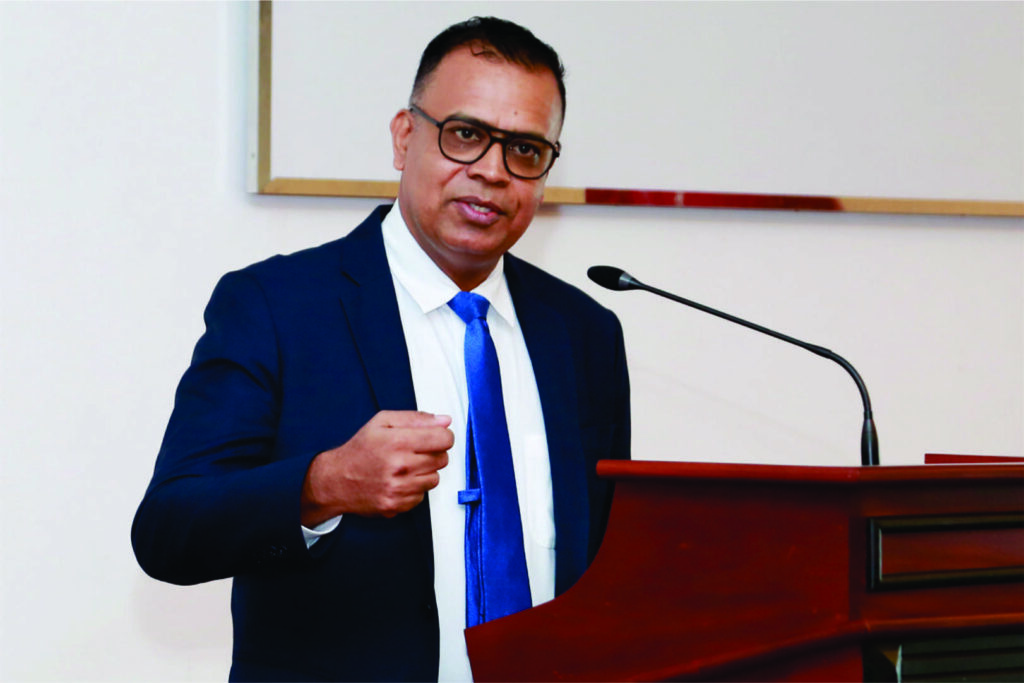
Opportunities to Access Green Finance
In this session, Mr. Ranga Pallewala, a global expert on green finance, delivered a thought-provoking keynote address. He outlined how climate change is not only an environmental challenge but also a significant financial risk, particularly for industries reliant on natural resources. His speech underscored the importance of integrating climate considerations into financial decision-making and highlighted the potential of green finance to fund climate-friendly initiatives. Here are the key takeaways from his address:
Financial institutions and businesses have a crucial role in promoting climate resilience. By financing green initiatives, banks and investors can support sustainable development while protecting their own long-term financial interests. The need for businesses to move away from carbon-intensive industries and toward climate-friendly investments was also highlighted.
Climate risks, including extreme weather events and rising temperatures, are affecting business operations in Sri Lanka. Industries such as agriculture, tourism, and real estate in Sri Lanka are particularly vulnerable. Mr. Pallewala stressed that failing to account for these risks in financial planning could result in severe economic consequences.
Green finance, including tools like green bonds and sustainability-linked loans, offers companies the chance to secure funding for projects that promote environmental sustainability. This includes investments in renewable energy, sustainable agriculture, and projects aimed at reducing carbon emissions. Mr. Pallewala emphasized that green finance is not just a niche market—it is becoming central to the future of sustainable business.
Panel Discussion Highlights
Climate change poses financial risks to key industries in Sri Lanka, such as agriculture, fisheries, and tourism. Companies must integrate climate resilience into their strategies to safeguard against economic disruptions caused by extreme weather and environmental changes.
Green finance offers local businesses the opportunity to invest in sustainable projects like renewable energy, waste management, and eco-friendly agriculture. By leveraging options such as green bonds, Sri Lankan companies can achieve both environmental protection and economic growth.
The private sector in Sri Lanka, particularly banks and financial institutions, has a vital role in promoting a low-carbon economy. By funding green projects, they can lead the transition to sustainable practices while ensuring long-term profitability.
As regulatory frameworks evolve in Sri Lanka, businesses must enhance transparency in disclosing their environmental impact. Adapting to these climate-related regulations will help companies align with national sustainability goals and maintain market competitiveness.
Call to Action
Segment 2 of the Annual Technical Sessions highlighted the urgent need for businesses to incorporate climate risks into their financial planning and leverage the opportunities presented by green finance. With insightful contributions from Mr. Ranga Pallewala and a dynamic panel discussion, the session underscored that addressing climate risks is not only critical for environmental sustainability but also for long-term business resilience. By embracing green finance, Sri Lankan companies can lead the way in building a more sustainable and climate-resilient future.



